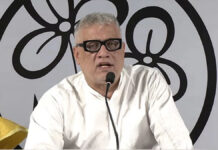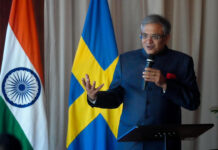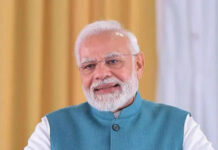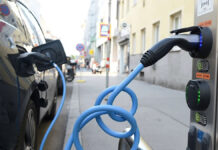G Srinivasan
The Conference of Parties (COP28) is underway in Dubai where world leaders are holding their customary climate confabulations, including Vatican’s Pope Francis, under the United Nations Framework Convention on Climate Change (UNFCC). As many as 190 Parties reached a pact on the contours of a UN fund to pay for climate-related casualties in poor countries on the opening day with less than half a billion dollars support from the rich world to be run by the World Bank. This small feat is in the face of the reality that much is at stake for mankind and its survival sans trouble in the planet earth, putting paid to the hope that there may not be any seismic shift in postures, given the insatiable appetite for energy by all nations in their constant quest for development. Even as all the stakeholders acknowledge the growing frequency of the extreme-weather losses everywhere that make this a momentous phase to move ahead with cohesive action to combat if not curb the noxious emissions despoiling the living space, the requisite political will backed by the wherewithal is still a desideratum devoutly desired.
No doubt, there hang a host of huge issues likely to be sticking points at COP28 that include, among others, the phasing down/out of fossil fuels, aiming for a tripling of renewables capacity by 2030, doubling energy efficiency, slashing methane emissions and how to defray for climate mitigation with common but differential responsibilities (CBDR) continuing as a sore point among the early big polluters and those now struggling in the ladder of development to catch up with by resorting to intense energy consumption patterns. Some less developed countries argue, justifiably so, that they should be allowed to use ‘dirty’ energy to develop their economies as advanced countries had developed historically. But climate-vulnerable nations, that include small island ones, are driving for a COP28 deal that phases down the unbridled use of fossil fuels. The G20 countries early this year were unable to reach an agreement on this issue, which does not augur good for the 198 governments invited to COP28.
It is germane to focus on the latest Energy Efficiency report of the Paris-based International Energy Agency (IEA) which bemoaned that this year the world experienced the hottest one on record, threatening to trigger a vicious cycle of both higher electricity use and carbon emissions. Heatwaves could also worsen health disparities, raise electricity costs, disrupt essential services, and drive migration. Besides, extreme heat puts strain on electricity systems, requiring substantial investments in grid infrastructure and power generation, while burdening consumers with hefty cooling costs, especially for the most vulnerable. It is difficult for governments to address many intersecting crises of energy, climate and cost of living in the absence of more avenues for revenue, unless a collective action plan is chalked out so that the burden is co-shared among countries in a spirit of solidarity and cooperation instead of handwringing haplessly, experts contend.
The former minister of foreign affairs and ex-senior vice-president and general counsel of the World Bank Ana Palacio rightly went on record to highlight the ‘energy trilemma’ – the need to balance the reliability, affordability and sustainability of supplies of alternative sources of energy, away from the abject dependence on fossil fuels such as coal, oil and gas. Accordingly, while sustainability is obviously crucial – which means rapidly reducing emissions to limit global warming to 1.5 degrees Celsius above pre-Industrial levels, as outlined in the Paris Agreement – it cannot come at the expense of access. Per contra, the world must perforce have to augment access to energy as currently as many as 775 million people the world over lack electricity. It is also not quite unsurprising that even as the IEA noted in October that 2030 would mark ‘the beginning of the end of the fossil-fuel era’ in the run-up to net zero green growth path, the oil producers’ cartel – Organisation of Petroleum Exporting Countries with enough arsenal of oil fuel under their absolute control and belt – spurned the IEA’s prognostications, contending that they were based on ideology and not on hard facts. This is as it should be so with energy demand plateauing at its peak for some time, rather than swiftly starting to taper off. That intervening period demand will have to be met and the extent to which renewables would be able to cover is not yet clear. As such, OPEC caution against underinvesting in energy security cannot be pooh-poohed.
Notably, the green transition is driven by public policy and as observed by the French economist Jean Pisani-Ferry in a recent report to the French Prime Minister that “by putting a price –financial or implicit – on a free resource (climate), the transition increases production costs, with no guarantee that the reduction in energy costs will eventually offset them, while the investments it calls for do not increase productive capacity but must nevertheless be financed”, alluding to the direct upfront cost in exploring and exploiting non-conventional sources of energy.
His argument is based on the conviction that it would be an act of blindness to fail to recognise that climate change is occurring, and it is equally a folly and flippancy to argue that this imperative action to transition would have no economic cost by 2030! Resolving this dilemma is no easy task for politicos, given their compulsion to stay in power with least cost burdens to their constituents, ignoring the hidden cost in terms of health issues for the stakeholders, going forward. As such, the green transition path is not a bed of roses as the thorns and pinpricks on the way need to be patiently pulled out by collective efforts in the form of a global cooperation pact among all the members of the COP.
Be that as it may, the time is ripe for revival of the instrumental role of multilateral institutions to seek a common solution to the brewing crisis on the climate front. Already, the World Trade Organisation (WTO) has a remit to advance trade in a way that promotes sustainable development. In line with this remit, it has released a ten-point set of ‘Trade Policy Tools for Climate Action’ on December 2 in support of COP28’s focus on trade as a lever for climate mitigation and adaptation. In a foreword to the report, the WTO Director General Dr Ngozi Okonjo-Iweala said the toolkit highlights on areas at the core of delivering “a people-centered green transition, bringing down the cost of clean energy, decarbonising supply chains, aligning standards and regulations, repurposing subsidies, and creating new business opportunities in the emerging low-carbon economy.
Illustrating the policy kits, it said in trade facilitation, for instance, members could expedite customs clearance, reducing greenhouse gas (CHG) emissions associated with inefficient customs procedure and road freight by adopting trade facilitation measures. Again, in procurement, WTO member governments could help reduce their own carbon footprint in procurement of more climate-friendly goods and services. In a like vein, members could help hasten the transition to a green economy by rebalancing tariff policies that might inadvertently benefit carbon-intensive sectors.
Similarly, WTO argued, that with global community seeking to step up climate financing, particularly to buttress developing economies’ quest for a just transition, repurposing environmentally harmful and market-distorting subsidies could be a win-win for people and the planet, going forward.
In fine, as the COP28 conclave plods on in the coming days, the world badly needs a slew of concrete proposals to emerge that would give content and meaning to render the planet a placid place to inhabit even as the dreary drudge of eking out a livelihood for millions demand helpful policies by member governments of the UN with collective will and tenacity of purpose.
(G Srinivasan is a Delhi-based freelance economic journalist.)





























